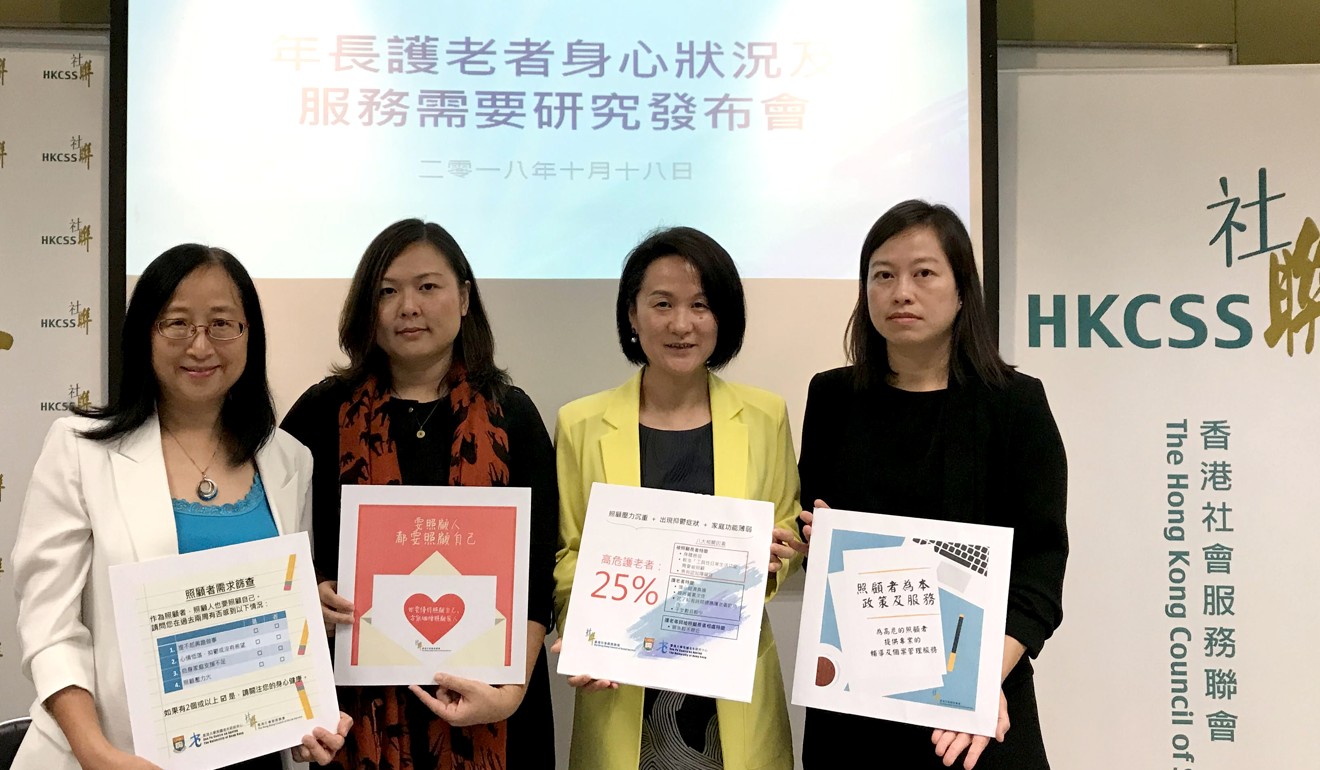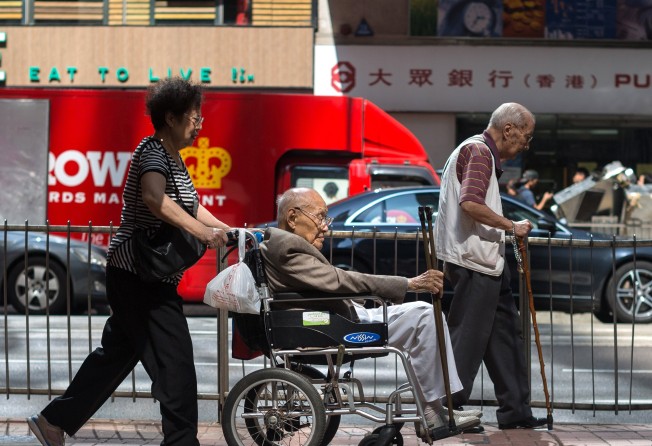
Hong Kong’s elderly carers are at a ‘high risk’ of physical and mental health problems, survey finds
Call for more government support after study shows that many people caring for the elderly in Hong Kong are faced with a heavy physical and emotional burden

A quarter of carers for the elderly in Hong Kong are at a “high risk” of having physical and mental issues, and many are also ageing themselves, according to a survey released on Thursday.
The Hong Kong Council of Social Service, which conducted the research with the University of Hong Kong’s Sau Po Centre on Ageing, called for better government support for people who take care of the elderly.
Most of the 1,115 interviewees, with an average age of 70, were taking care of their spouses.
The survey found that 25 per cent of carers who had to take care of their elderly family members reported having three psychosocial health problems at the same time.

They were considered a “high risk” group, as they reported experiencing a heavy burden for caregiving, having symptoms of depression and “poor family function”– meaning weak family relationships.
“With such an emotional burden, the perceived burden on the caregiver and also the perceived dysfunctioning of family, they would not be able to perform this great role on providing care to their family members,” director of the HKU centre, Dr Vivian Lou Wei-qun, said.
“There would be a higher probability for them to feel ill … they may commit homicide or they may also send the care recipients to the hospital. They would do lots of things outside of their rational decision-making,” Lou said.
Eight factors were found to contribute to the heavy stress on carers, such as the weak health of the elderly and carers worrying about finances.
Last year, the city recorded at least three tragedies in which carers killed their ill family members who required heavy levels of care.
The research team approached the carers from 29 District Elderly Community Centres and 33 Neighbourhood Elderly Centres in the city. While the team did not look for carers from specific age groups, they found that the average age of interviewed carers was 70, with 35 per cent aged 75 years old or older.
Close to 70 per cent of the interviewed carers were taking care of their spouse, and another 27 per cent were taking care of their parents or in-laws.
Fifty-eight per cent of interviewees also reported spending more than 40 hours per week on the caregiving work, approximately equivalent to the time spent in a full-time job.
Forty-four per cent of total respondents said they had poor or very poor sleep quality.
Emily Leung Hoi-yan, chief officer in elderly service for the council, said the government should step up support for those carers. Suggested measures included conducting regular household surveys on the elderly and their carers, so the government could better understand their needs and allocate appropriate resources. Financial support for carers should also be improved, Leung said, as to alleviate their financial burden.